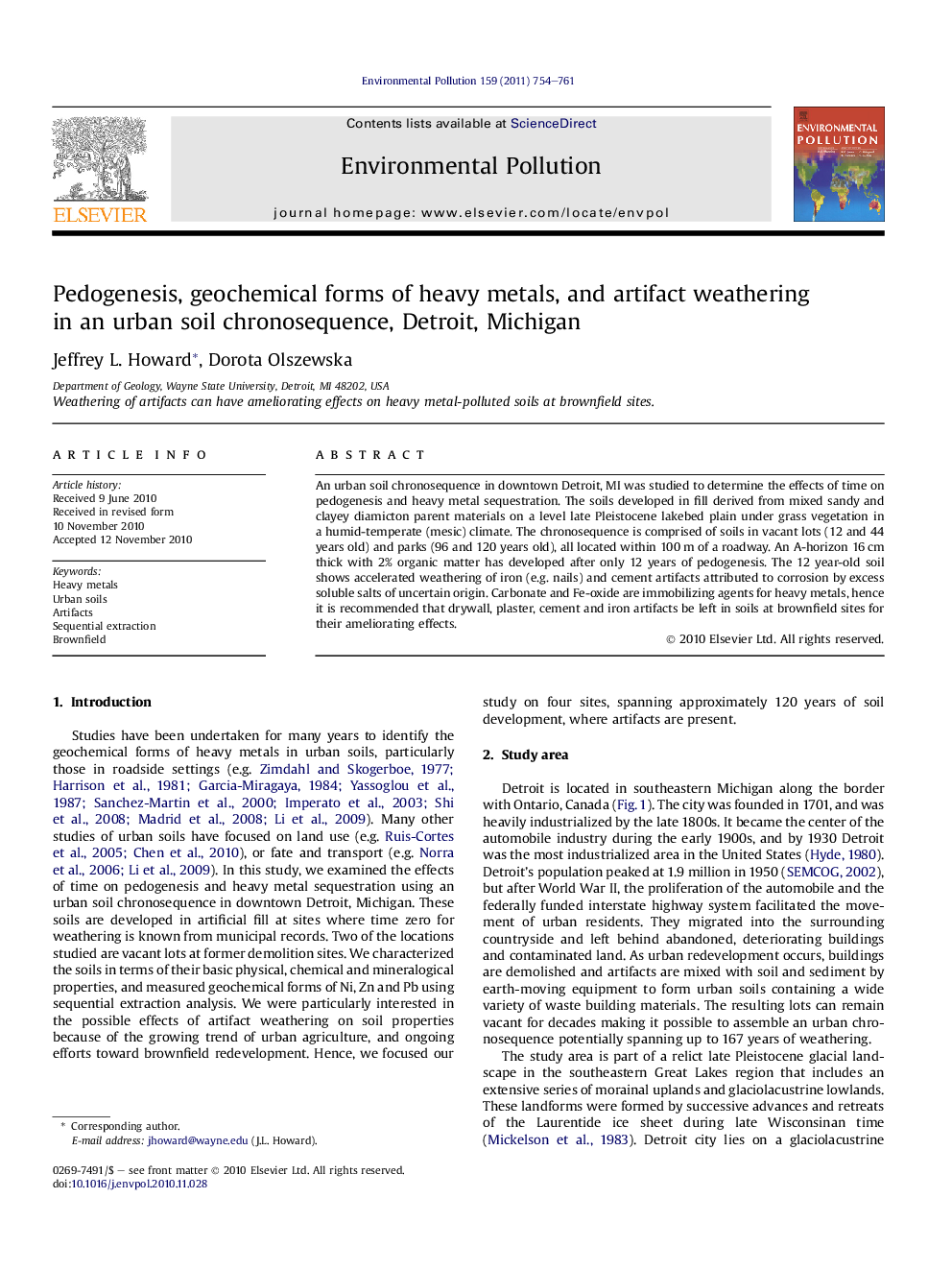| کد مقاله | کد نشریه | سال انتشار | مقاله انگلیسی | نسخه تمام متن |
|---|---|---|---|---|
| 4425378 | 1309102 | 2011 | 8 صفحه PDF | دانلود رایگان |

An urban soil chronosequence in downtown Detroit, MI was studied to determine the effects of time on pedogenesis and heavy metal sequestration. The soils developed in fill derived from mixed sandy and clayey diamicton parent materials on a level late Pleistocene lakebed plain under grass vegetation in a humid-temperate (mesic) climate. The chronosequence is comprised of soils in vacant lots (12 and 44 years old) and parks (96 and 120 years old), all located within 100 m of a roadway. An A-horizon 16 cm thick with 2% organic matter has developed after only 12 years of pedogenesis. The 12 year-old soil shows accelerated weathering of iron (e.g. nails) and cement artifacts attributed to corrosion by excess soluble salts of uncertain origin. Carbonate and Fe-oxide are immobilizing agents for heavy metals, hence it is recommended that drywall, plaster, cement and iron artifacts be left in soils at brownfield sites for their ameliorating effects.
Research highlights
► An A horizon has developed in these urban soils after only 12 years of pedogenesis.
► Iron and cement artifacts have undergone accelerated weathering due to deicing salts.
► One soil is contaminated by lead derived from weathered paint.
► Artifact weathering can have ameliorating effects on urban soils contaminated by heavy metals.
Journal: Environmental Pollution - Volume 159, Issue 3, March 2011, Pages 754–761